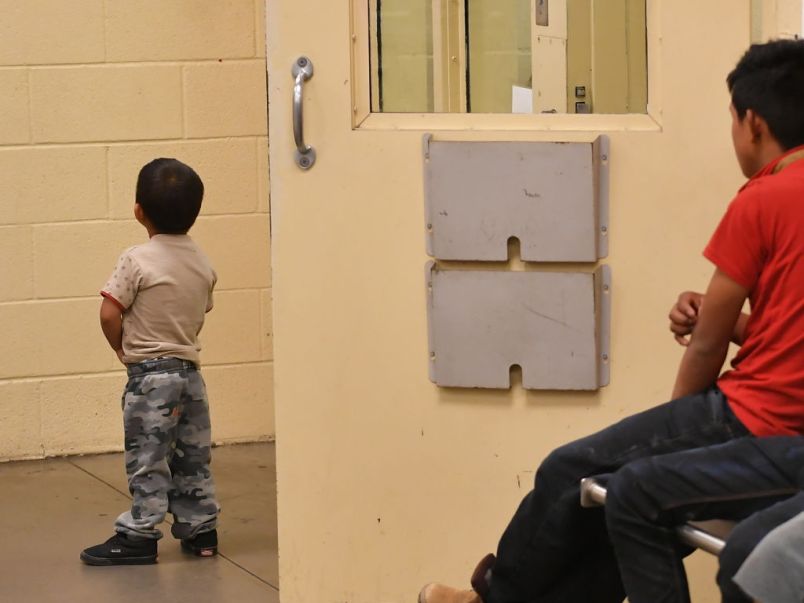The government is preparing for a potential surge in children separated from their parents at the border, according to documents obtained by Slate.
According to Slate, which reported Tuesday on a budget exercise it obtained from within the Department of Health and Human Service’s Office of Refugee Resettlement, the documents project the cost of the office needing as many as 25,400 beds for children in ORR’s care. ORR is responsible for taking custody of unaccompanied minors — including children who have been separated from their families — after they’re detained at the border.
Currently, ORR has nearly 12,000 children in its custody, of which up to 3,000 were separated from their families at the border as a result of the Trump administration’s family separation policy.
Slate reported the documents stress that budgeting for 25,400 beds is considered the maximum expenditure potentially required by HHS, and that ORR officials don’t specifically say they have knowledge of an impending spike in family separations.
But, barring any unforeseen surge in truly unaccompanied minors detained at the border, the potential expenditure increase imagined by the budget exercise would necessarily be made up of children separated from their families at the border.
To pay for the budget shortfall that would be created by the potential increase in beds, Slate reported based on the documents it obtained, HHS would ask Congress for more money. But, the report said, the increased expense would also be covered by diverting funds from an HIV/AIDS program, and from elsewhere in ORR’s budget.
While the exercise doesn’t mention a recent court order that separated families be reunited, it does refer to President Donald Trump’s June 20 order which purported to end his family separation policy by instead ordering families to be detained together indefinitely, according to Slate.
A federal judge ruled Monday night that the Trump administration could not change the rules of the Flores Settlement, which prohibits children from remaining in detention centers, even with their families, for longer than 20 days.
Tuesday marks the 20-day mark after Trump’s order. According to the documents Slate obtained, HHS officials may have anticipated the judge’s Monday ruling, accounting for a spike in children referred to its custody for four weeks beginning Tuesday.
While Attorney General Jeff Sessions’ “zero tolerance” prosecution initiative is still in effect — meaning that everyone referred to the Justice Department who was obtained at the border will be prosecuted for illegal entry, including parents — Customs and Border Protection has acknowledged that it is no longer referring parents with children to the Justice Department of prosecution.
If CBP returns to referring parents for prosecution, however, the spike in beds envisioned by the HHS documents could become a reality.
On Monday, the Justice Department warned that parents detained with children at the border could soon face a choice: “remaining in family custody with their children pending immigration proceedings or requesting separation from their children so the child may be placed with a sponsor.”







Yeah, don’t fix anything, just prepare for the double down.
It bears repeating: The Trump officials responsible for this gigantic clusterfuck should be jailed.
“Why just kidnap and imprison a few thousand babies and other children of asylum seekers? Let’s make it even more’”
Welcome to a fascist police state, America.
Trump admin are just cowards following a coward.
Please don’t say Trump admin, just say Trump.
“The buck stops here”,means Trump is the guilty one is and should be the one jailed.
Doesn’t this demonstrate contempt for the judge’s orders? How can they keep defying legal demands imposed on them?